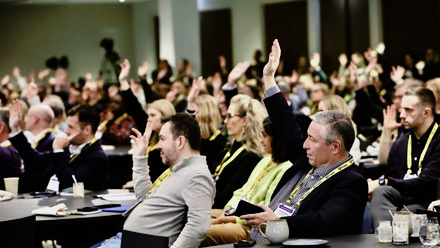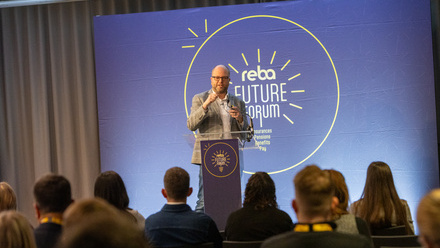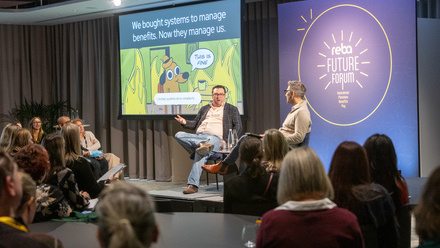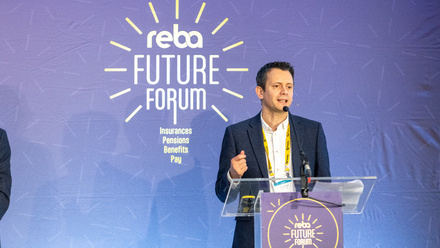Three ways to use employee benefits to support the social wellbeing of working families

When our social wellbeing is strong, our physical and mental wellbeing benefits. In one well-known study, Social Relationships and Health (1988) conducted by JS House, KR Landis, and D Umberson, lack of social connection was shown to be of greater detriment to our health than smoking, obesity and high blood pressure.
Having a minimum of three people with whom we are close may be enough to protect us from psychological disorders. Family, friends and communities build the foundations for good health. When we have positive relationships, wide social networks, community cohesion, empowerment and social participation, we are healthier and happier. In fact, belonging, trust and connection in our lives are the strongest predictors of good mental health. Our social wellbeing can influence how long it takes us to recover from illness and even how long we will live for. But in a world where our work and home lives are no longer separate, it can be difficult for employees to maintain the relationships that are so vital to their wellbeing.
As most employers will already offer an employee benefits scheme, adding or highlighting existing benefits can be an effective and easy way to start to include social wellbeing as part of your overall wellbeing strategy.
1. Offer employees more time
It’s incredibly important that employers realise their staff must build and maintain healthy, meaningful relationships with their friends and family. In addition to the quantity and quality of the relationships in our lives, the amount of time we spend with friends and family impacts our wellbeing. Research suggests that, in order to thrive, we need to have six hours of social time a day. This includes time at work spent in good company, talking and sharing.
The UK has been named the “unpaid overtime capital of Europe” as employees here put in the longest hours across the EU in 2018, according to ADP’s The 2019 Workforce View in Europe Report. A third of workers in the UK say they work longer than their contracted hours, and this means that work is sometimes getting in the way of spending time with people. As a result, one of the most requested benefits for employees last year was time. People want to have more time in their day to spend with family and friends. Flexible working and additional holidays now top the list of most attractive benefits for almost every age group in the UK, according to a survey commissioned by Get Living in 2019.
Giving employees the ability to select benefits that give them additional free time can go a long way to ensuring their own social wellbeing – and that of their family’s – is looked after. When offered, holiday trading gives employees the ability to flex their annual allowance up or down to match that of a partner, or to give them more time to spend with friends and family.
Enjoying this article?
Want to know more about social wellbeing? Why not ask your peers about their approach using rebaLINK, our networking and due diligence platform.
Read more about social wellbeing and family-friendly benefits.
Contact the Associated Supplier to discuss employee benefits.
2. Appreciate yourself and others
Loneliness in society is on the rise, especially in young people. One in four workers say they feel lonely and don’t have anyone at all to confide in. A global study has found that more than half of employees in 10 different countries feel lonely ‘always’ or ‘very often’, according to the Global Work Connectivity (2018) research from Future Workplace and Virgin Pulse.
We are experiencing fewer moments in our working lives that connect us to our colleagues. Without these moments of meaningful interaction, we aren’t building those essential interpersonal bonds, which means friendships aren’t blossoming at work as much as they used to. As a result, our own wellbeing – and even that of those around us – is being negatively impacted.
Being recognised for the effort we make is one of our very basic human needs. Research has found that a lack of recognition at work is a predictor of higher levels of loneliness.
Recognising the efforts of your colleagues brings you closer to them. When we get thanked by our colleagues, the same part of the brain gets activated as if we have been given money. The ventral striatum and the ventral medial prefrontal cortex are reward centres in the brain that are activated when we are thanked or receive compliments. Receiving social rewards boosts our self-esteem. They are especially powerful when they are unexpected.
Offering a recognition scheme at work helps to build emotional connections between employees. When this happens, our colleagues have more people in their network they can lean on, talk to and share with. By interacting like this with people at work, employees are able to offload, de-stress and maintain better mental health. As a result, employees are less likely to go home to their families feeling stressed and frustrated.
3. Altruism and contribution to the community
Supporting those less fortunate than ourselves not only improves our communities but improves our own social and mental health. Committing acts of kindness just once a week can help employees to improve their own wellbeing. Involving children in schemes that give back to society can have a huge impact on their own wellbeing, too. Working with your children to build an understanding of what others are feeling and going through, and the positive impact this can have breeds empathy. When children develop a strong sense of empathy, they build stronger and more secure relationships themselves.
Multiple studies have shown that when people give, the area of the brain associated with positive feelings is activated. Helping others promotes empathy too, which enhances the wellbeing of those around us. When these things happen, our mood improves, ensuring that when we do spend time with our family and friends, we aren’t as stressed, worried or anxious, leading to better quality time together.
A popular benefit that allows employees to give back to their communities is charitable giving. Employees are able to use their own salary to donate via payroll to causes that will benefit the community around them. As payroll giving comes out of salary after National Insurance, but before tax, employees can get tax relief on their donations which can be passed onto the charity. This means for a standard rate taxpayer, a monthly donation of £20 will actually only cost the employee £16. So, more money gets donated to their chosen charity than if they were to donate directly.
In the US, 65% of the Fortune 500 offer matching gift programmes for employees who wish to donate via payroll. In many cases, employers will double the donation. As a result, around $2-3bn is donated to charities annually through payroll giving in the US.
Work is a primary source of stress for most people, so finding ways to help employees de-stress before they go home to their friends and family can have a positive impact on all forms of their social wellbeing. When working parents get home feeling more positive, more valued and more connected, this rubs off on the people in their life, and the time they spend with their loved ones is of higher quality. As a result, you have a more engaged employee with improved wellbeing and better social connections, both at home and at work.
This article is provided by Benefex.
Supplied by REBA Associate Member, Benifex
The home of award-winning employee benefits, reward, recognition, & communications.







